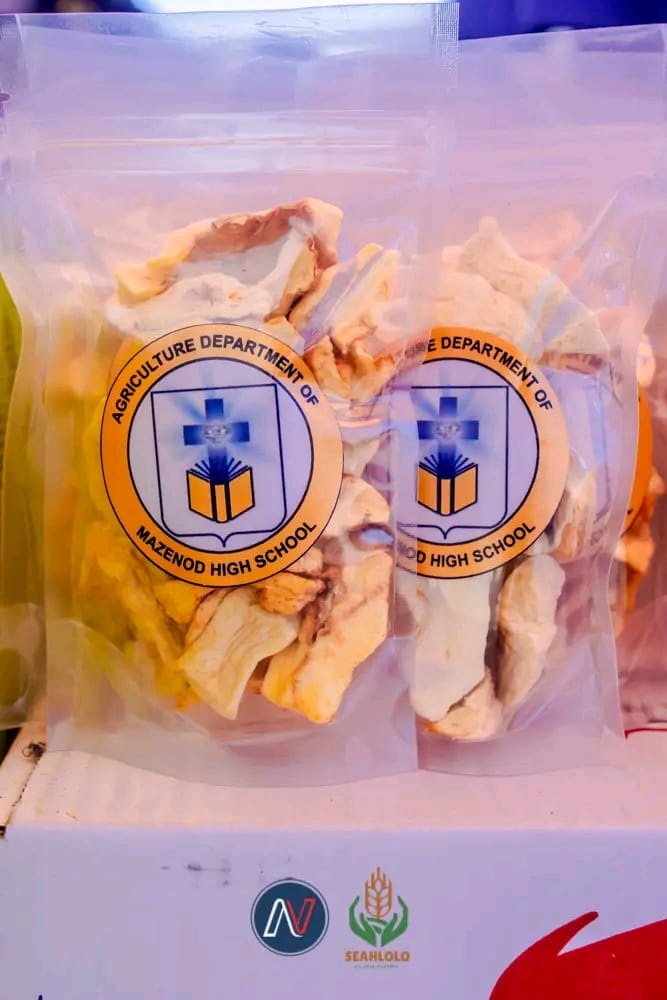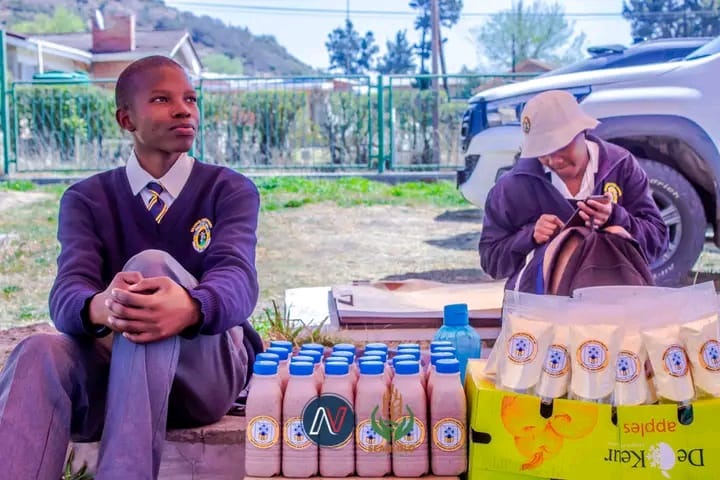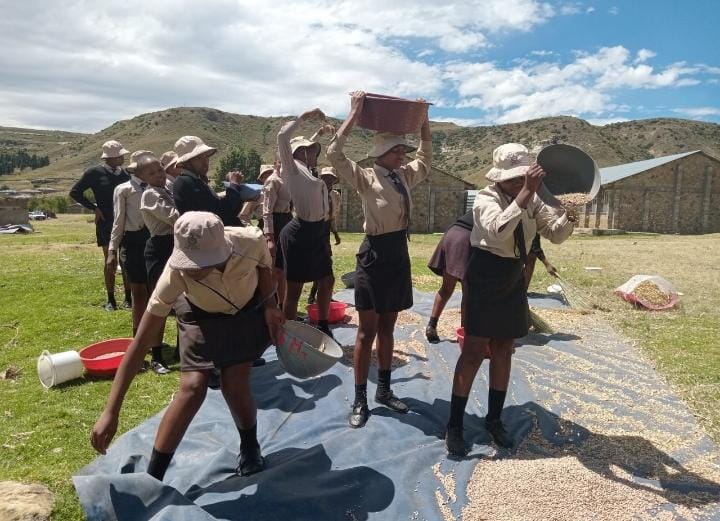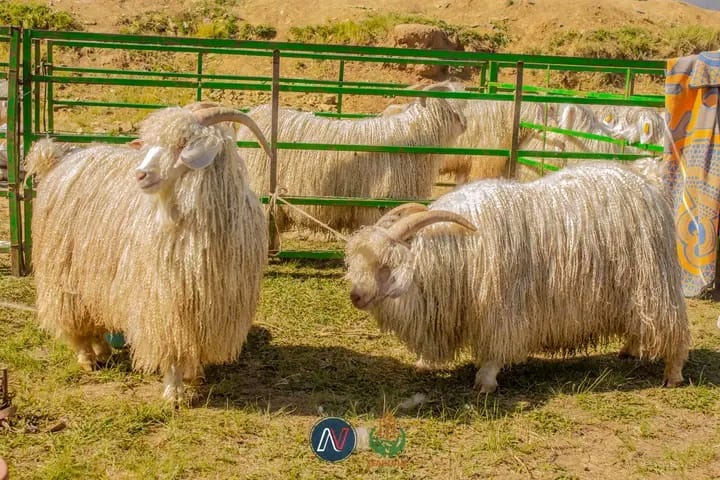Kabelo Masoabi
At Mazenod High School, the agriculture program is more than just a subject—it’s a gateway to understanding Lesotho’s most vital industry and an introduction to the numerous career possibilities within agriculture.
The program offers students a blend of theoretical knowledge and practical skills in livestock management, gardening, food production, and even branding and marketing their agricultural products.
Maleshoane Mary Makepa, the agriculture teacher at the school, emphasises that agriculture is not only about working the land but opens doors to diverse career paths ranging from environmental conservation and agribusiness to sustainable food production.
“Agriculture offers a multitude of career options, thanks to its ever-evolving nature and continuous introduction of new technologies. By exposing students to agricultural concepts early on, they gain a deeper appreciation of its significant role in their lives and its potential to ensure food security for the future,” she explained.
Makepa added that the skills gained in the agriculture program equip students with practical knowledge for self-sustenance, even if they do not pursue higher education.
“We want students to see agriculture as more than just farming—it’s a survival skill and a viable career option in a world where food and resource sustainability are becoming more important,” she said.
Excellence in Agriculture Education
Mazenod High School recently celebrated its achievement as the second-place winner in the schools in agriculture category at the 2024 Farmers Pitso Awards, held at the Manthabiseng Convention Centre.
The event showcased the school’s agriculture group, who presented an impressive array of fresh produce that left attendees, including local farmers and agriculture enthusiasts, in awe.
The produce, meticulously cleaned and labelled under the school’s Department of Agriculture, demonstrated the high standards of quality and presentation instilled in the students.
Makepa credits the students’ success to their hands-on involvement in mixed farming.
The program includes crop cultivation and livestock rearing, such as chickens and turkeys, as well as orchard management.
In the past year, the students produced various types of maize, including morado, which was used for making soft porridge, and panapolph, a variety used for toasted maize (lipabi).
The school also had a successful harvest of peas, which were sold locally.
“Many of our crops are processed, branded, and sold within the community, this way our students learn every aspect of the agricultural value chain—from growing the crops to packaging and selling them as final products like dried apples (mangangajane), ginger drinks, and packaged vegetables.”
Learning Beyond the Classroom
The agriculture program at Mazenod High School starts in grade 8 as part of the school’s science and technology curriculum. By grade 9, students can choose to focus on agriculture, nutrition, or dressmaking. The school is also planning to expand its program to include the production and packaging of rabbit and free-range chicken meat, though it remains on a small scale due to the educational nature of the initiative.
While the program has been successful, Makepa acknowledged some challenges. Climate change and limited class time pose hurdles to achieving full productivity, and she pointed out that certain parental expectations regarding how students should spend their time can also affect their engagement in the agriculture projects.
“There are times when students want to get more involved, but their schedules or other commitments may limit their participation. It’s something we are working to balance,” she said.

Students See a Bright Future in Agriculture
For students like Palesa Moloi, a grade 11 student, the agriculture program has opened her eyes to the possibilities in farming.
“I’ve always been fascinated by how much agriculture affects our daily lives. In Lesotho, agriculture is a big part of our culture, and I see great opportunities for improvement,” she said.
Moloi shared her hopes of learning more about modern farming technologies and business practices that could transform how Lesotho farms.
“In the future, I want to learn about new farming technologies and business methods that could change how we farm. It’s not just about growing crops; it’s about creating sustainable, profitable farming solutions that can benefit entire communities,” she explained.
Her excitement reflects the school’s goal of teaching students that farming is not merely about subsistence but can also be a strategic and innovative way to tackle larger economic and environmental challenges.
Agriculture as a Lifelong Skill
Agriculture is more than an academic subject at Mazenod High School—it’s a practical education that can prepare students for lifelong success. ‘Maliopelo Letuma, a crop farmer and attendee of the Farmers Pitso Awards, expressed her joy at seeing youth so engaged in agriculture.
“Agricultural education equips students with critical survival skills. They not only learn how to differentiate between poisonous and non-poisonous plants but also understand the importance of soil health, food safety, and sustainable farming,” said Letuma, a graduate in Soil Science from the National University of Lesotho.
Letuma emphasised that these skills are critical for students to become self-sufficient.
“This practical knowledge is a tool for their independence and can also inspire them to pursue careers in farming, helping to secure the future of food production in Lesotho,” she added.
Diverse Opportunities in Agriculture
Lesotho’s agriculture industry offers a wide range of career paths, from traditional farming to more specialised roles in conservation, horticulture, and agricultural economics. Makepa notes that the program at Mazenod High School prepares students not just for life on the farm but for roles in food processing, marketing, and even environmental conservation.
“Agriculture is a significant source of employment in Lesotho, and the skills our students learn here can take them far. They can work in everything from crop production and agribusiness to food safety and environmental management,” Makepa said.
Inspiring the Next Generation of Farmers
Mazenod High School’s agriculture program is planting the seeds of a brighter future for Lesotho’s agricultural sector. By offering students hands-on experience and a comprehensive understanding of the entire farming process, the school is helping shape the next generation of innovators, conservationists, and business leaders who will carry Lesotho’s agricultural industry into the future.
“The work we are doing here is about more than just growing crops. It’s about growing minds, skills, and opportunities. We want our students to see that agriculture is not only a way to sustain themselves but a way to build successful and fulfilling careers.”
With students like Moloi dreaming of sustainable farming solutions and teachers like Makepa guiding them toward success, Mazenod High School is proving that agriculture is more than just an academic subject—it’s the foundation for a brighter, more prosperous future in Lesotho.
Summary
- At Mazenod High School, the agriculture program is more than just a subject—it’s a gateway to understanding Lesotho’s most vital industry and an introduction to the numerous career possibilities within agriculture.
- “We want students to see agriculture as more than just farming—it’s a survival skill and a viable career option in a world where food and resource sustainability are becoming more important,” she said.
- The school is also planning to expand its program to include the production and packaging of rabbit and free-range chicken meat, though it remains on a small scale due to the educational nature of the initiative.

Your Trusted Source for News and Insights in Lesotho!
At Newsday Media, we are passionate about delivering accurate, timely, and engaging news and multimedia content to our diverse audience. Founded with the vision of revolutionizing the media landscape in Lesotho, we have grown into a leading hybrid media company that blends traditional journalism with innovative digital platforms.








